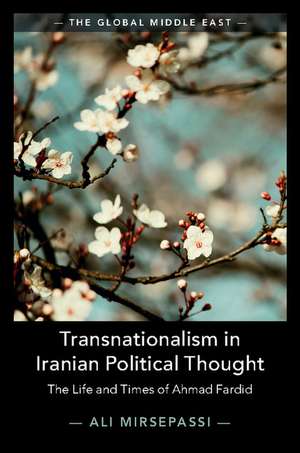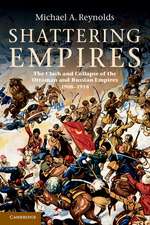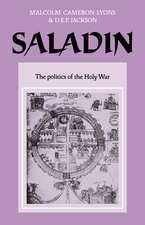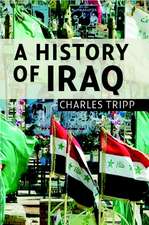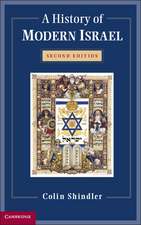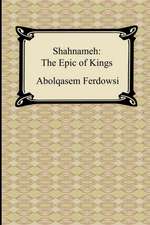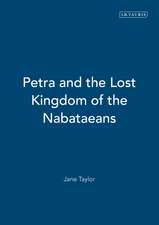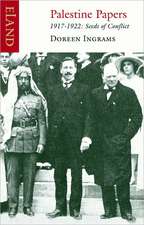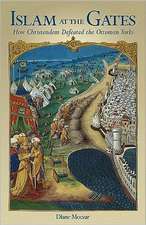Transnationalism in Iranian Political Thought: The Life and Times of Ahmad Fardid: The Global Middle East, cartea 1
Autor Ali Mirsepassien Limba Engleză Paperback – 22 feb 2017
| Toate formatele și edițiile | Preț | Express |
|---|---|---|
| Paperback (1) | 247.76 lei 3-5 săpt. | |
| Cambridge University Press – 22 feb 2017 | 247.76 lei 3-5 săpt. | |
| Hardback (1) | 647.48 lei 6-8 săpt. | |
| Cambridge University Press – 22 feb 2017 | 647.48 lei 6-8 săpt. |
Din seria The Global Middle East
-
 Preț: 153.39 lei
Preț: 153.39 lei -
 Preț: 209.78 lei
Preț: 209.78 lei -
 Preț: 238.40 lei
Preț: 238.40 lei -
 Preț: 231.82 lei
Preț: 231.82 lei -
 Preț: 202.82 lei
Preț: 202.82 lei -
 Preț: 178.53 lei
Preț: 178.53 lei -
 Preț: 237.96 lei
Preț: 237.96 lei -
 Preț: 186.61 lei
Preț: 186.61 lei -
 Preț: 231.09 lei
Preț: 231.09 lei -
 Preț: 270.07 lei
Preț: 270.07 lei -
 Preț: 193.71 lei
Preț: 193.71 lei -
 Preț: 356.91 lei
Preț: 356.91 lei -
 Preț: 203.50 lei
Preț: 203.50 lei - 11%
 Preț: 583.56 lei
Preț: 583.56 lei - 11%
 Preț: 640.30 lei
Preț: 640.30 lei -
 Preț: 177.86 lei
Preț: 177.86 lei -
 Preț: 283.03 lei
Preț: 283.03 lei - 11%
 Preț: 638.22 lei
Preț: 638.22 lei -
 Preț: 221.32 lei
Preț: 221.32 lei -
 Preț: 246.61 lei
Preț: 246.61 lei - 11%
 Preț: 705.53 lei
Preț: 705.53 lei - 11%
 Preț: 638.56 lei
Preț: 638.56 lei - 5%
 Preț: 805.74 lei
Preț: 805.74 lei -
 Preț: 286.85 lei
Preț: 286.85 lei -
 Preț: 321.52 lei
Preț: 321.52 lei -
 Preț: 322.04 lei
Preț: 322.04 lei
Preț: 247.76 lei
Nou
Puncte Express: 372
Preț estimativ în valută:
47.41€ • 49.20$ • 39.63£
47.41€ • 49.20$ • 39.63£
Carte disponibilă
Livrare economică 22 februarie-08 martie
Preluare comenzi: 021 569.72.76
Specificații
ISBN-13: 9781316636473
ISBN-10: 131663647X
Pagini: 408
Dimensiuni: 150 x 228 x 19 mm
Greutate: 0.67 kg
Editura: Cambridge University Press
Colecția Cambridge University Press
Seria The Global Middle East
Locul publicării:Cambridge, United Kingdom
ISBN-10: 131663647X
Pagini: 408
Dimensiuni: 150 x 228 x 19 mm
Greutate: 0.67 kg
Editura: Cambridge University Press
Colecția Cambridge University Press
Seria The Global Middle East
Locul publicării:Cambridge, United Kingdom
Cuprins
Part I. Introduction: Introduction. Islam after fall: why Fardid matters; 1. The historical context: the intellectual's modern calling; 2. 'Home' and the 'world': 'the swallows return to their nest'; Part II. The World of Young Fardid: 3. Young Fardid (1935–46); 4. Henry Corbin's 'imaginative spirituality' and Iranian 'Gharbzadegi' (Westoxication); Part III. Orientatlism and 'Spiritual Islam': Fardid, Corbin, Foucault: 5. Gharbzadegi (Westoxication); 6. The politics of spirituality: Foucault, the Iranian Revolution; Part IV. Ahmad Fardid's Philosophy after the Revolution, 1978–81: 7. The divine encounter and apocalyptic revelations; 8. A reckless mind: policies of Gharbzadegi; Part V. Fardid Remembered: 9. Interviews with Fardid's friends and critics; Conclusion. Fardid after Fardid.
Recenzii
'This book is a fascinating account of one of the most enigmatic intellectuals of modern Iran, the father of the idea of Westoxication. It offers an analytical frame whose implications go beyond Iran, disclosing how such anti-modern thinking is linked to the ideas of European luminaries such as Heidegger, Corbin, and Foucault. A meticulous example of scholarship.' Asef Bayat, Catherine and Bruce Bastian Professor of Global and Transnational Studies, University of Illinois, Urbana-Champaign
'Ali Mirsepassi's book recounts the fascinating story of a momentous cross-cultural encounter between Western thought and Islam. At the center of his account lies the reception of the German philosopher Martin Heidegger's thought by the influential Iranian Islamist, Ahmad Fardid. Not only has Mirsepassi provided us with an outstanding study of the transnational circulation of ideas. His book also stands as a powerful cautionary tale concerning the ideological perils of virulent 'anti-modernism' - a tale that has the potential to revolutionize many of the unstated assumptions underlying the field of postcolonial studies.' Richard Wolin, Distinguished Professor of History and Political Science, CIty University of New York Graduate Center
'… Mirsepassi's Transnationalism in Iranian Political Thought is an informative and insightful reading for anyone who wants to understand the complex mindset of Fardid and the network of ideas that orchestrated the course of the twentieth-century intellectual history of Iran.' Mustafa Aslan, Kult Online
'Ali Mirsepassi's book recounts the fascinating story of a momentous cross-cultural encounter between Western thought and Islam. At the center of his account lies the reception of the German philosopher Martin Heidegger's thought by the influential Iranian Islamist, Ahmad Fardid. Not only has Mirsepassi provided us with an outstanding study of the transnational circulation of ideas. His book also stands as a powerful cautionary tale concerning the ideological perils of virulent 'anti-modernism' - a tale that has the potential to revolutionize many of the unstated assumptions underlying the field of postcolonial studies.' Richard Wolin, Distinguished Professor of History and Political Science, CIty University of New York Graduate Center
'… Mirsepassi's Transnationalism in Iranian Political Thought is an informative and insightful reading for anyone who wants to understand the complex mindset of Fardid and the network of ideas that orchestrated the course of the twentieth-century intellectual history of Iran.' Mustafa Aslan, Kult Online
Notă biografică
Descriere
A study of the life and thought of the Iranian philosopher Ahmad Fardid and the development of political philosophy in post-revolutionary Iran.
